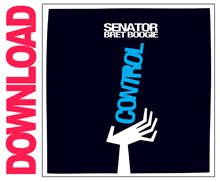
On A Mission (Selected Poems and A History of The Last Poets)
Abiodun Oyewole and Umar Bin Hassan with Kim Green, 1996
The Last Poets’ relative obscurity reflects issues plaguing the group throughout its storied career. The realities of being an honest-to-goodness revolutionary and the trappings of inner-city life hindered the group’s evolution, but created compelling drama and cultural relevancy.
Abiodun Oyewole and Umar Bin Hassan with Kim Green, 1996
The Last Poets’ relative obscurity reflects issues plaguing the group throughout its storied career. The realities of being an honest-to-goodness revolutionary and the trappings of inner-city life hindered the group’s evolution, but created compelling drama and cultural relevancy.
“On A Mission” sums up the group’s story through the candid recollection of its most vital members, Abiodun Oyewole and Umar Bin Hassan. The book also collects 30 poems. The works are best heard and not read. They have a more traditional appeal when printed. Though tremendously forceful and persuasive, the poems do not seem as good without the fiery delivery of its author. The Last Poets helped create the spoken word genre, but seem undeveloped when compared to more proficient written poetry.
Predecessors to rap, The Last Poets took the black oral tradition to new heights in expressing minority plight. Springing from Harlem’s black power movement, the poets used their voices to shout against, and antagonize, the establishment.
“Since Harlem was the mecca of African-American political and cultural events, many of us assumed the revolution would start there and spread like wildfire. Being one of The Last Poets made me feel like I was at the vanguard of making this revolution happen,” reflects Oyewole.
The group of three poets and a drummer was born in 1968 at a birthday celebration for Malcolm X. They quickly garnered a following due to their guttural honesty and emotive performances. The Last Poets became instant legends with the release of their first record. They created the revolutionary black poet stereotype so often parodied. Draped in dashikis and ranting about “the man,” the group stated what America needed to hear, while creating an ethnic intrigue that still exists today.
After shocking people into consciousness with poems like “Niggers Are Scared of Revolution” and “Run Nigger,” The Last Poets began to fall apart. New members came and went. They were soon afflicted with issues so prevalent in the 1980s. Umar Bin Hassan was even thought to be dead after struggling with drug addiction. He was so adrift that he missed his royalty money after A Tribe Called Quest came calling for sample clearances in the 1990s.
With a resurgence of popularity based on their impact on Golden Era hip-hop, the group reorganized. The mid-1990s saw a new record (hip-hop heavy and even featuring Chuck D) and a slot on the Lollapalooza tour.
-Bret Duchen





No comments:
Post a Comment